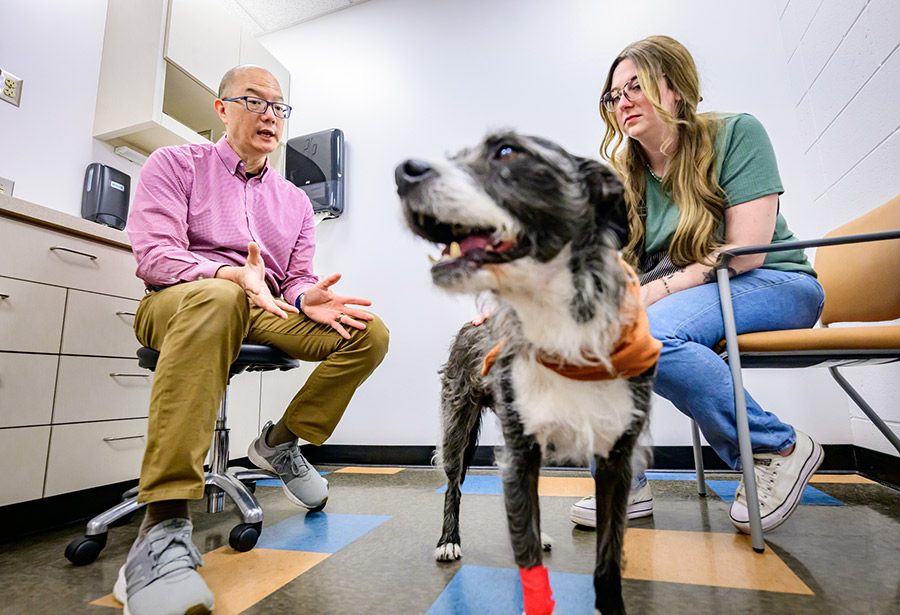From challenging course loads to emotional stress related to pet euthanasia, veterinary medicine students can face a tough time during school.
Kate Irwin, College of Veterinary Medicine’s first licensed clinical therapist (LCSW, Licensed Clinical Social Worker), invites students to seek her out as a resource during their times of difficulty.
“I started in February 2017, and I have learned so much about veterinary medicine and the community here, which is very compassionate, but also involves a lot of stressful, hard work,” says Irwin. “I am realizing that there’s a need for wellness and coping skills. I want to make sure that the students are caring for themselves, and not just caring for their patients.”
Irwin describes her job as unique, while immensely important. She is a resource to approximately 500 students, from first to fourth year in the veterinary degree program, to address their emotional, academic, and financial stresses.
Her responsibilities include: connecting students with services from other resources on campus, assisting them in finding a psychiatrist or psychologist, counseling and wellness coaching to address different stresses, helping with referrals to DRES, and more.
Irwin helped with creating a health and wellness website for the veterinary students that provides academic, emotional, and financial resources including information about accessing the Disability Resources & Educational Services, Women’s Resources Center, McKinley Health Center, Counseling Center, and more.
“I am excited that the website is out there. My biggest hope is that it lets students know that they are not alone and that it’s okay to reach out for services,” says Irwin.
Irwin believes that veterinary students’ counseling should be specific to address their concerns, because their needs are different from those of students in other fields.
Imposter syndrome is a common cause of stress among veterinary medicine students; it afflicts individuals who feel that they do not belong in the school or feel like a fraud, even though they are bright and high-achieving.
“There’s never too big or too small a problem to come and talk about with me,” says Irwin.
She hopes that more students will feel welcomed to walk through her door by learning about her through the wellness website or by being referred to her through their friends.
“The first step is just being aware that there’s a problem or an issue, and having that courage to be vulnerable with someone. Isolation is the hardest part,” says Irwin.
—Da Yeon, Eom




